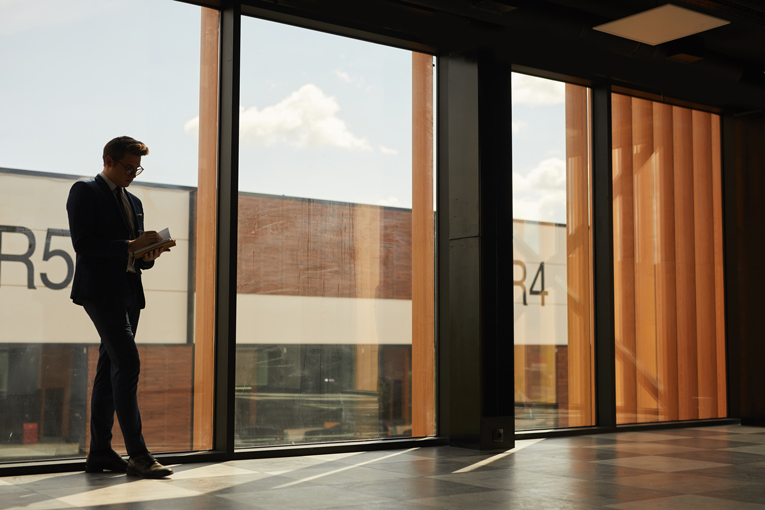Conditions of a Commercial Property Lease

Starting or expanding a business can be an exciting prospect. However, if this involves moving into a commercial residence for the first time, it can also be daunting.
Lease agreements often contain complex contractual clauses and seemingly impenetrable legal jargon. As such, it is best to make sure you know what you are signing up for in order to safeguard your business.
Below we will give a guide, outlining some of the conditions and complications of commercial property leases.

What is a commercial lease?
A commercial lease is a legal contract between a landlord and a business tenant. It permits the tenant to use certain premises for commercial activity, for a set period, in exchange for rent.
The lease will determine the rights and responsibilities of both parties for the duration of the lease term.
Who are the parties to the lease?
Generally, the parties to a commercial lease are termed as follows:
- The lessor (the landlord)
- The lessee (the tenant)
What is a guarantor?
Sometimes referred to as a surety, a guarantor will sign a contract confirming they will pay any rent deficits or losses to the landlord if the lessee:
- Cannot pay the agreed rent
- Breaches the tenancy agreement
How is a commercial property lease different from a residential property lease?
A commercial lease enables a tenant to rent a property for business purposes. A residential lease is for a tenant to rent a home or space for personal uses.
What does a commercial lease generally cover?
A commercial lease will often set out the following terms:
- The type of property being let
- The address of the property being let
- The term of the tenancy (for example, whether it is a fixed-term or periodic renewal)
- The amount and frequency of the rent
- The type of business permitted on the premises
- Details of any security or damage deposit
- Ownership of any leasehold improvements
- Requirements for lease renewal
- Tenant or landlord improvement agreements
- Whether the lessee can sublet the property
- Notice provisions for tenancy termination
- Insurance conditions
What is an automatic renewal?
Automatic renewal means that the lease will continue indefinitely on the agreed period. This could be weekly, monthly, or yearly. It will renew until either the tenant or landlord gives notice of termination.
What are the different commercial lease terms?
Unlike residential properties which are generally half-yearly or 12 monthly contracts, a commercial lease can take the following forms:
A fixed end lease
A fixed end lease provides a specific date on which the tenancy will end. This means that neither party needs to give the notice to terminate the contract. Also, both parties have certainty about when the agreement will end.
The landlord cannot make changes to the contract, such as increasing the rent unless the lease stipulates otherwise or the tenant agrees to the changes.
If the tenant stays beyond the specified date, the landlord can either:
-
- Continue accepting rental payments on a month-to-month basis
- Sign a new lease
- Commence eviction proceedings
A fixed period lease (weeks/months/years)
This type of lease will state a start date for the contract to commence. It will also confirm the number of weeks/months/years that the lease will run for.
The advantage of this type of lease is that neither party needs to give the notice to terminate the contract. It will only end on the specified date.
As above, the landlord is not allowed to increase the rent or make changes to the contract. This is unless the lease stipulates otherwise, or the tenant agrees to the changes.
If the tenant stays beyond the specified date, the landlord can either:
- Continue accepting rental payments on a month-to-month basis
- Sign a new lease
- Commence eviction proceedings
A periodic tenancy lease
A periodic tenancy can be set on a weekly/monthly or yearly basis and renews automatically until either party terminates the agreement.
To do this, the landlord or tenant must give notice in line with their contractual agreement. Upon termination, the tenant must vacate the property, or the landlord can commence eviction proceedings.
Unlike a fixed period lease, the landlord can raise the rent or change the terms of lease during the period.

How is rent paid on commercial properties?
There are four fundamental types of payment agreement on commercial properties:
1. Base rent
Base rent refers to the minimum or root amount of rent agreed as per the lease. It will exclude percentage rent or any additional operational costs.
2. Percentage lease
A percentage lease is usually used for retailers, shopping complexes or multi-tenant commercial properties. In a percentage lease, the tenant agrees to pay a fixed rent plus an additional percentage of gross income.
3. Full repair and insurance lease
Also known as an FRI lease, this is where the tenant takes on all costs for maintenance, repair and insurance arising from the leased property.
4. Gross rent lease
A gross rent lease is where the tenant pays a base rent as well as any specified expenses arising from the leased premises. The landlord will then pay all other costs associated with operating and maintaining the property. Typical operating expenses include insurance, utilities, and maintenance overheads.
My contract includes fixtures. What does this mean?
To qualify as a fixture, an item of property must be ‘sufficiently attached’ to premises; meaning that to remove said item would result in damage to the property.
Examples of fixtures include fitted cabinets, sinks and toilets.
Items that can be removed without considerable damage tend not to be considered a fixture, but a chattel.
What is a chattel?
Chattels are items of personal property. They differ from fixtures by the ease at which they can be moved from one location to another.
Examples of chattels can include curtains, microwaves, desks, and computers.
What are leasehold improvements?
Some commercial leases reference leasehold improvements. Effectively these are expenses incurred for the improvement of the property. They are considered to be fixed assets and will depreciate in value throughout the lease.
How can a commercial tenant legally use the premises?
A tenant can only use a commercial premise inline with what has been agreed in the ‘permitted use of premises’ clause of their tenancy contract.
This clause will stipulate what types of business the tenant can engage in. Likewise, if the tenant alters their business needs during the tenancy, and they differ from the original agreement, then they will have to obtain written consent from the landlord.
Takeaway
Commercial leases and their allowances are far more complicated than residential contracts. Make sure that you safeguard your business needs by agreeing on a lease that best benefits and suits your bourgeoning company.
Contact one of our commercial law solicitors today to find out more about commercial leasing and your rights.
Do you need a solicitor?
Find a solicitor on Qredible in just a few easy steps
















